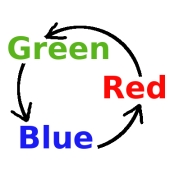



Barb Allen wrote:
When my broody hen was raising chicks I bought organic chick starter and they never touched it. My broody hen taught them to eat what she ate - the sprouted grains and seeds - and they grew into beautiful and healthy chickens. My last Buff was 8 when she was killed by some daytime creature - a rogue raccoon I think. And she was still laying eggs regularly - at 8 yrs. old. They were never sick and laid well all their lives, in spite of me not giving them any medicines or special supplements or commercial food. They didn't get any extra protein except what they got in the grains and seeds and the bugs and worms they found.
r ranson wrote:We used to use an egg scale to asses our eggs when we finished washing them. It didn't take much time, but there was less money for graded eggs. We only did this when we sold them in shops.
r ranson wrote:But now our eggs are all pre-sold, we can put more energy into keeping our hens happy which improves the taste of the eggs which is the best selling feature.



Luke Perkins wrote:I recently started a website dedicated to spreading plant material and information about purple tree collards. They can reach over ten feet tall and are hardy down to around 20° F (-7° C). Depending on how you pruned it I think you could definitely get a walking stick out of one. I will try to take some photos of the trunks on one of our older tree collards tomorrow. They are probably over two inches in diameter. Our crop of dino kale that we planted last summer overwintered and was about three to five feet tall before going to seed last month.

things like beets, carrots, radishes will all be fine once cooked.
To insure that you don't have to worry about pathogens, start using a product called RIDEX monthly, adding this bacterial booster to your septic system will get rid of those pathogens and keep everything working as it should.
If you have any concerns, just build raised beds, that way there will be enough soil between the leach field and your garden vegetables.
You can also inoculate with more bacteria (EM) and you can also inoculate with fungi (oyster spawn is super for this and you will end up with some super tasty mushrooms as a bonus.)
